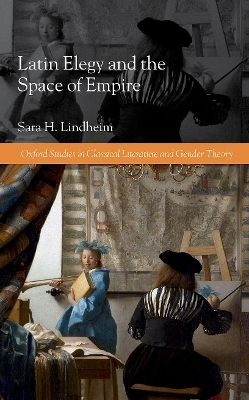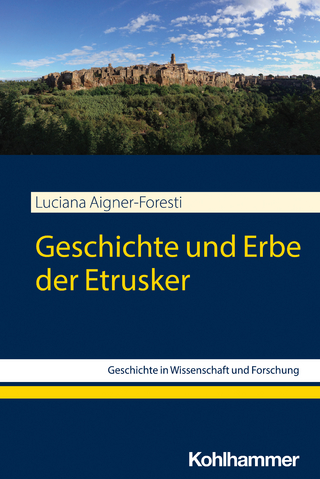
Latin Elegy and the Space of Empire
Oxford University Press (Verlag)
978-0-19-887144-6 (ISBN)
In a time of aggressive imperial expansion, Latin elegists expressed geographical concerns about boundaries and limits through masculine and feminine subjects in their poetry. Latin Elegy and the Space of Empire argues that the subject in Latin elegy, beginning with Catallus, constitutes itself in relation to the dynamic space of empire from the late Republic to the end of the Augustan age. The lack of fixiity in the elegiac subject and space of empire go hand in hand, and in imagining geographical space the question of our very nature as subjects comes to the fore.
Catullus, Propertius, Tibullus and Ovid each offers his own unique expression of the gendered subject, and their poetry runs the gamut of responses to the expanding geographical empire. First comes the dream of Roman imperium sine fine, an empire that capaciously stretches to the ends of the inhabited world. And yet, imperium sine fine requires the existence of some sort of fines, even if the fantasy demands that they be overrun. Formlessness, or worse, rapidly alternating forms, gives rise to anxieties and the desire to set down some fines, to establish where, exactly, the boundaries of empire are, what belongs "inside" and what can be relegated to "outside". But fines, cartographically speaking, are never as stable as we want them to be, and, for a rapidly expanding empire, are always under pressure. The very constitution of the gendered elegiac subject mirrors, anticipates, runs parallel to the problems and anxieties that the map of expanding empire both tries to solve, yet simultaneously reveals in its production of space.
Sara H. Lindheim is Associate Professor of Classics at the University of California, Santa Barbara. She is the author of Mail and Female: Epistolary Narrative and Desire in Ovid's Heroides (University of Wisconsin Press, 2003), and co-editor, with Helen Morales, of New Essays on Homer: Language, Violence, Agency (Ramus 44.1 and 2, 2015).
Introduction: Terminal Anxiety
1: Sine fine: Imperium and Subject in Catullus
2: What's Love Got to Do With It?: Mapping Cynthia In Propertius' Paired Elegies 1.8a-b and 1.11-12
3: On the Road Again: Following the vias in Tibullus
4: Painted Worlds and Porous Walls: Propertius 4.3 with 4.2 and 4.4
5: Sine finibus: Imports and Exile in Ovid Amores 1.14, Ars Amatoria 3, Remedia Amoris, Medicamina Faciei Femineae, Tristia, Epistulae Ex Ponto
Conclusion: The Amator, the Puella and the Space of Empire
| Erscheinungsdatum | 17.05.2021 |
|---|---|
| Reihe/Serie | Oxford Studies in Classical Literature and Gender Theory |
| Verlagsort | Oxford |
| Sprache | englisch |
| Maße | 147 x 223 mm |
| Gewicht | 450 g |
| Themenwelt | Geschichte ► Allgemeine Geschichte ► Altertum / Antike |
| Geisteswissenschaften ► Sprach- / Literaturwissenschaft ► Anglistik / Amerikanistik | |
| Geisteswissenschaften ► Sprach- / Literaturwissenschaft ► Literaturwissenschaft | |
| ISBN-10 | 0-19-887144-9 / 0198871449 |
| ISBN-13 | 978-0-19-887144-6 / 9780198871446 |
| Zustand | Neuware |
| Informationen gemäß Produktsicherheitsverordnung (GPSR) | |
| Haben Sie eine Frage zum Produkt? |
aus dem Bereich


